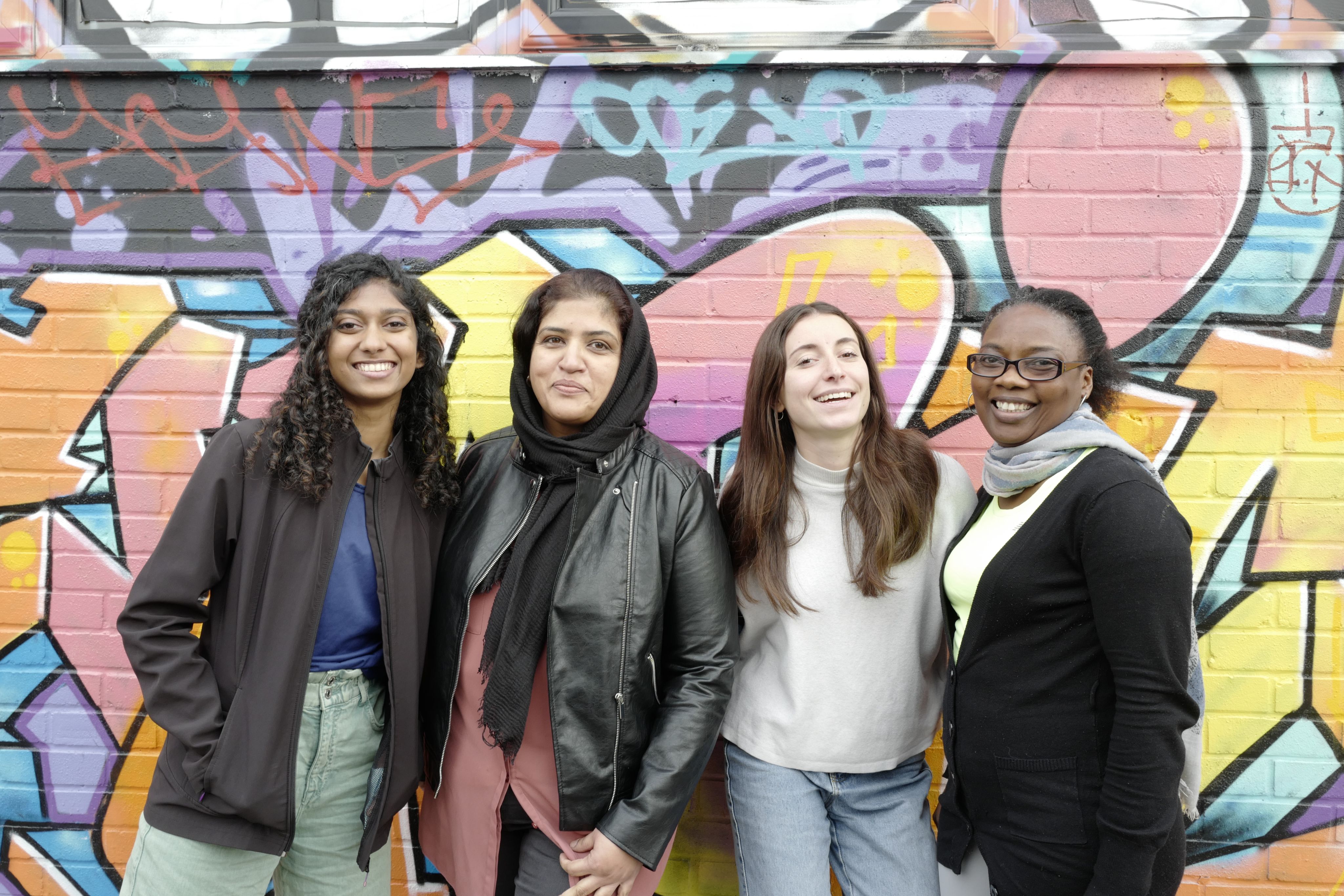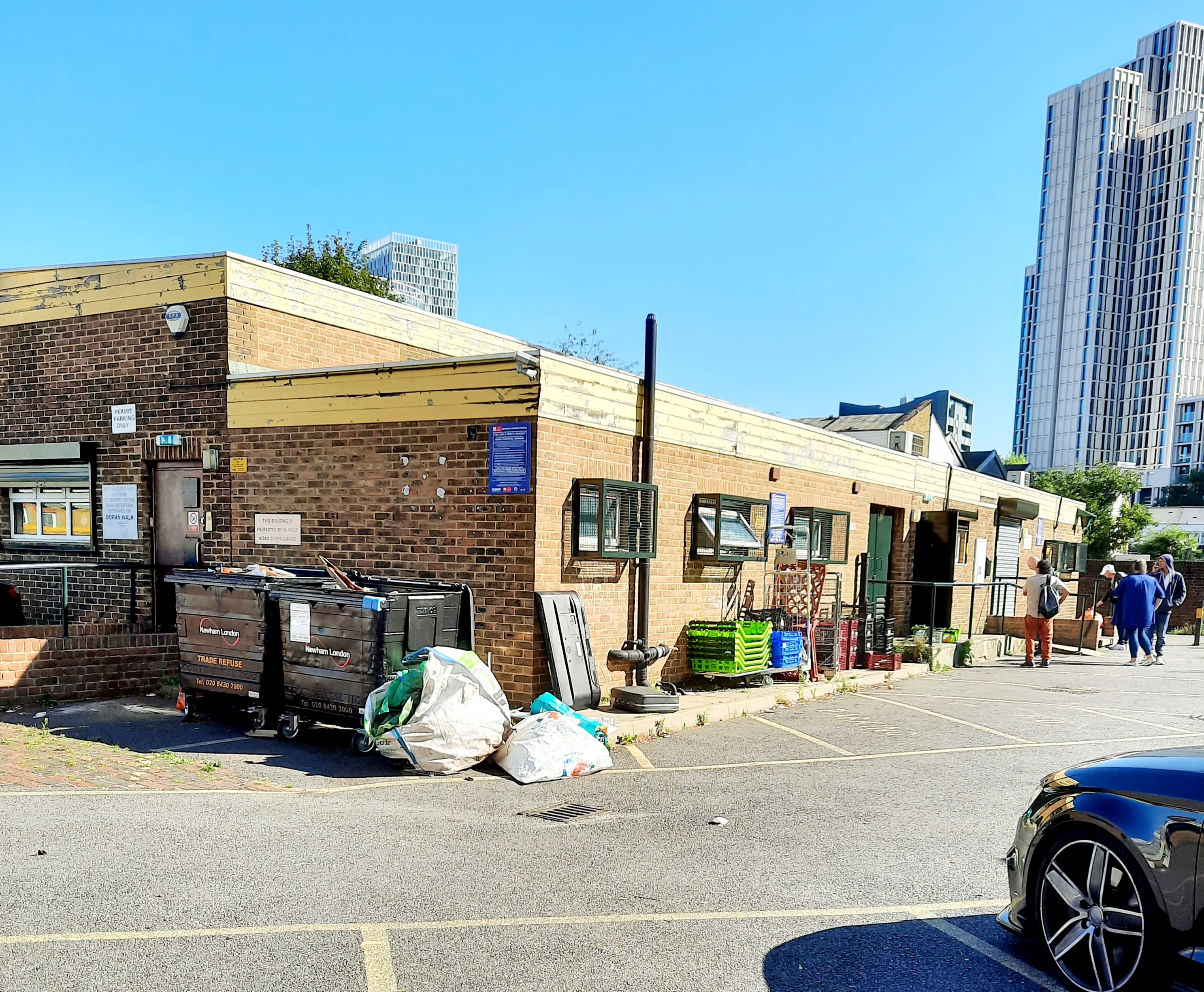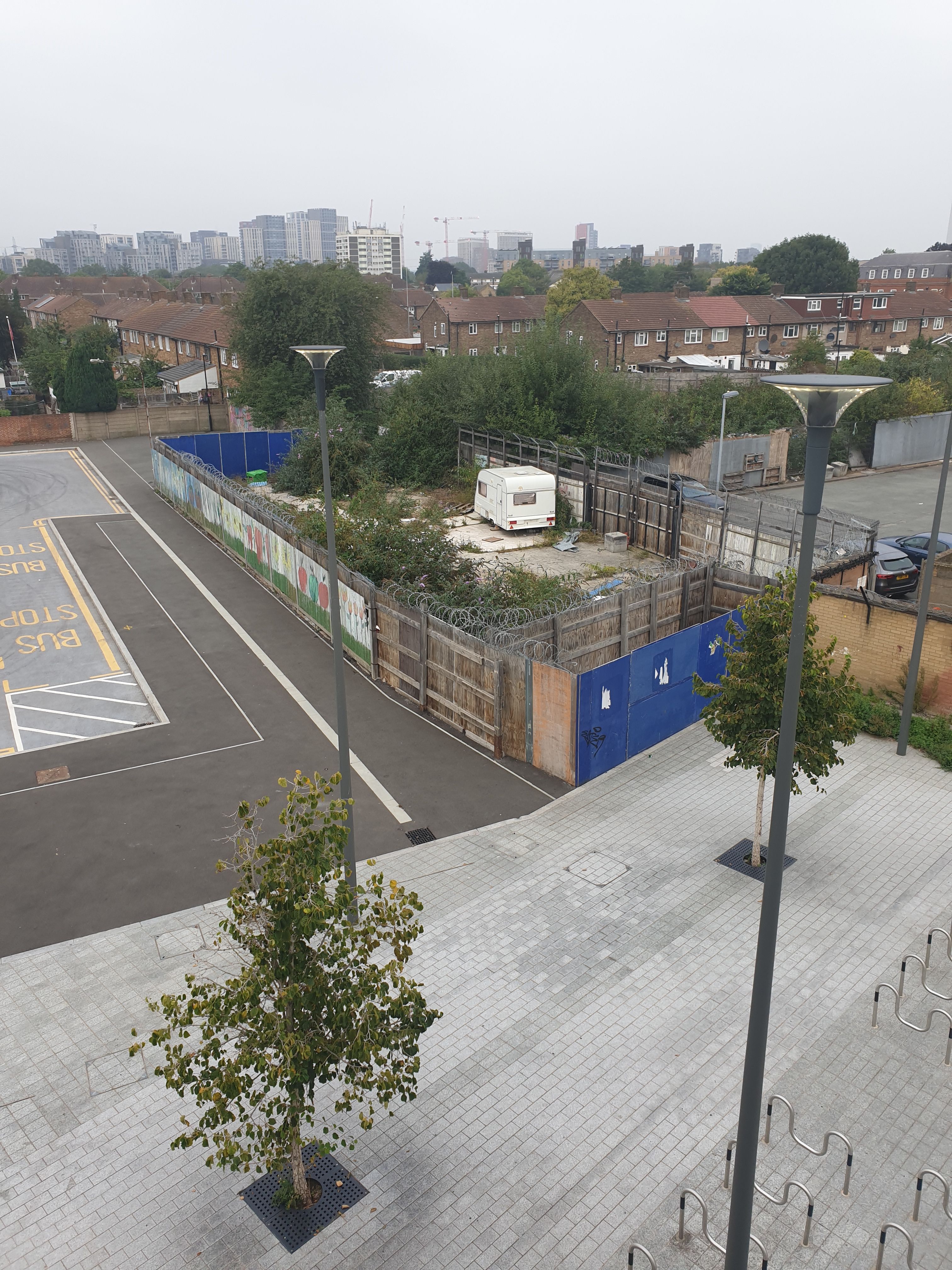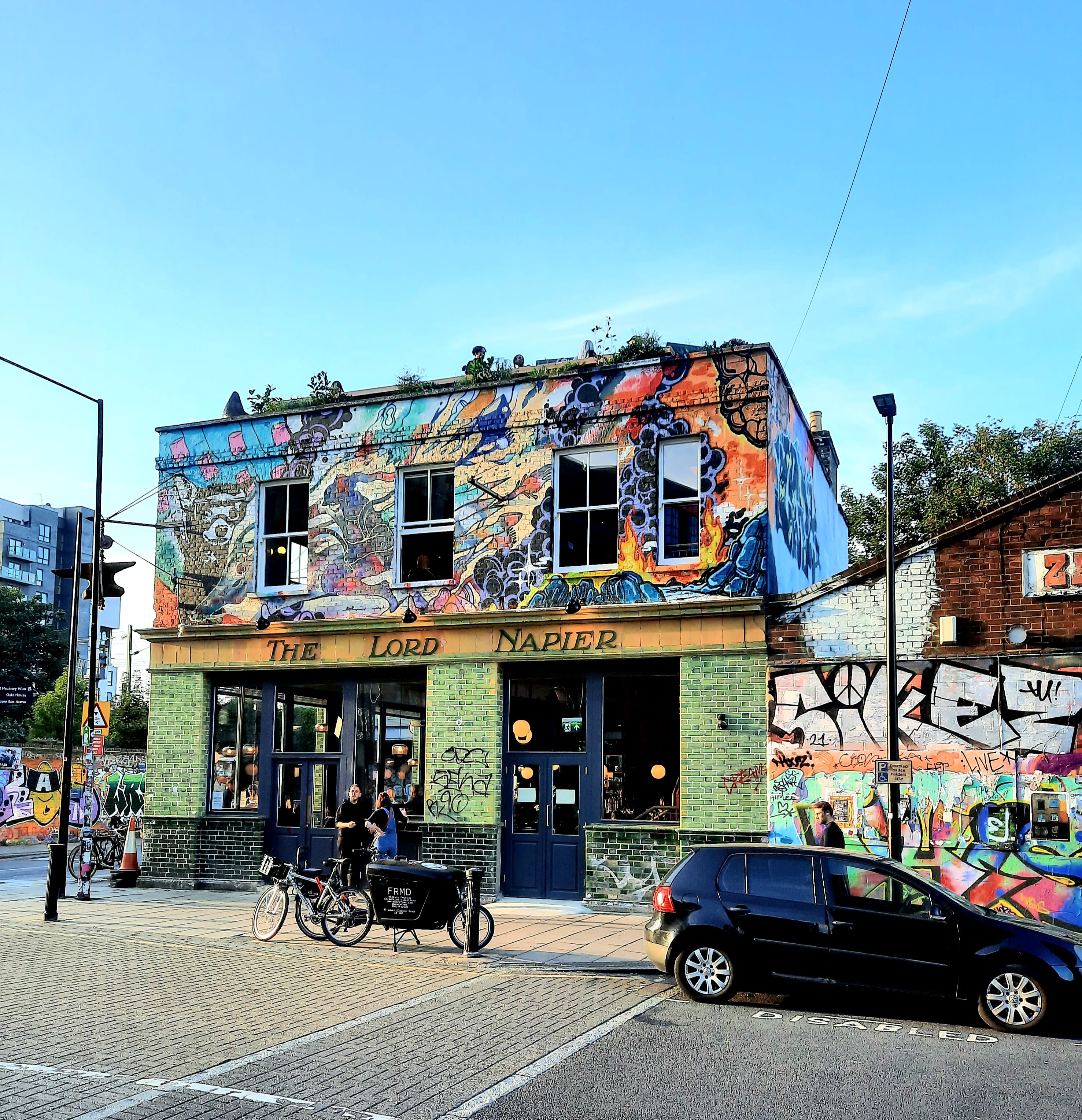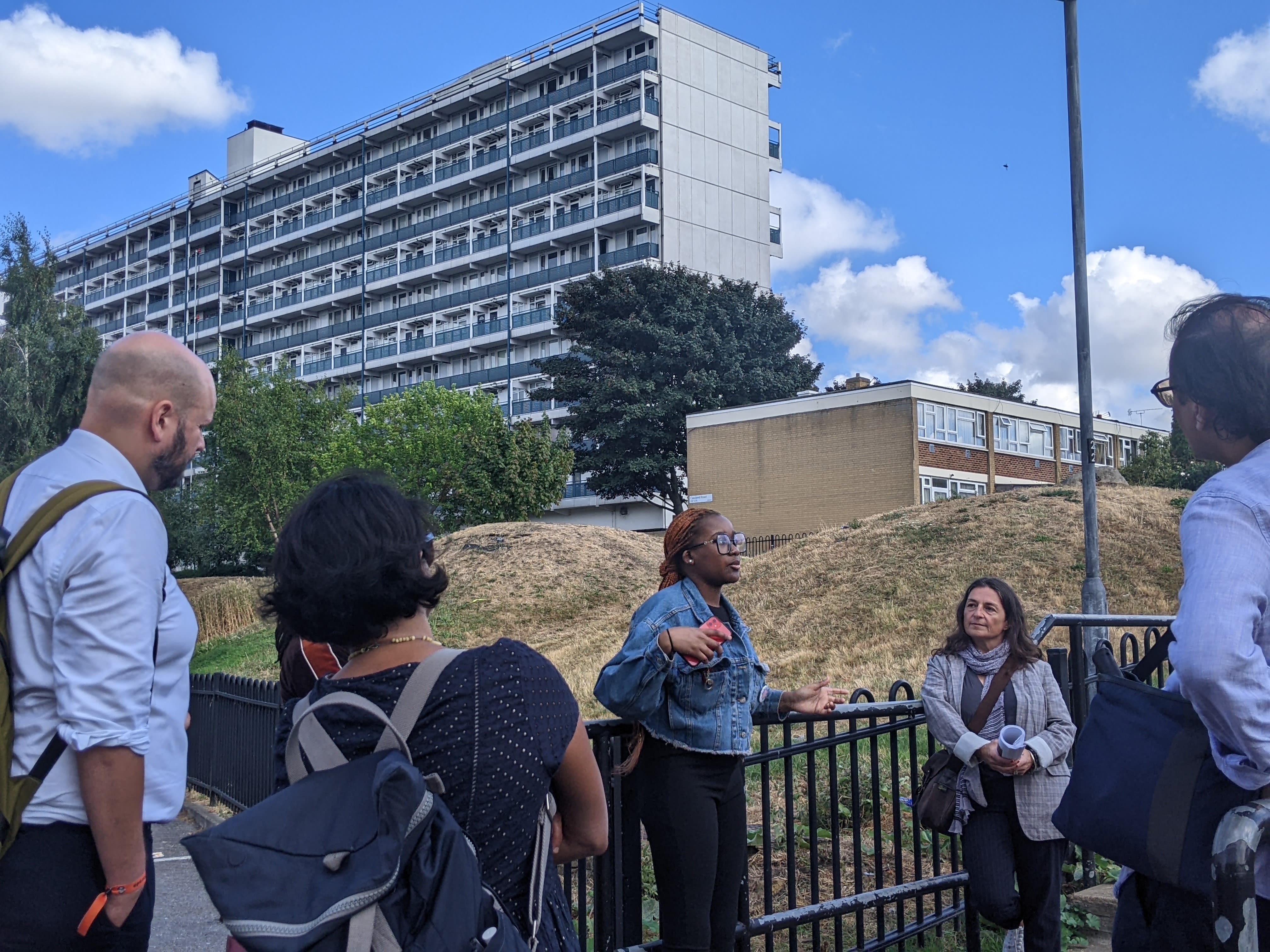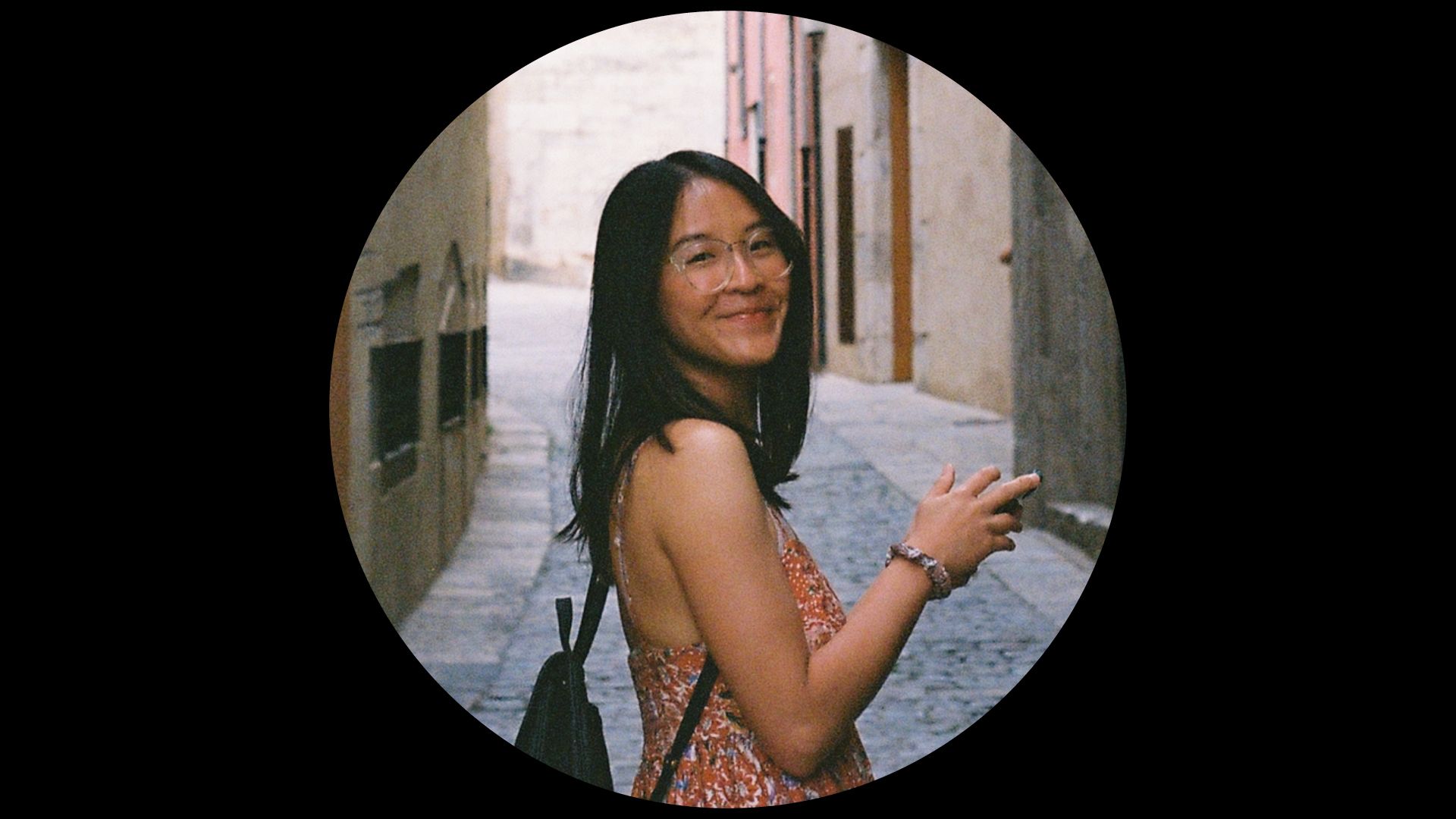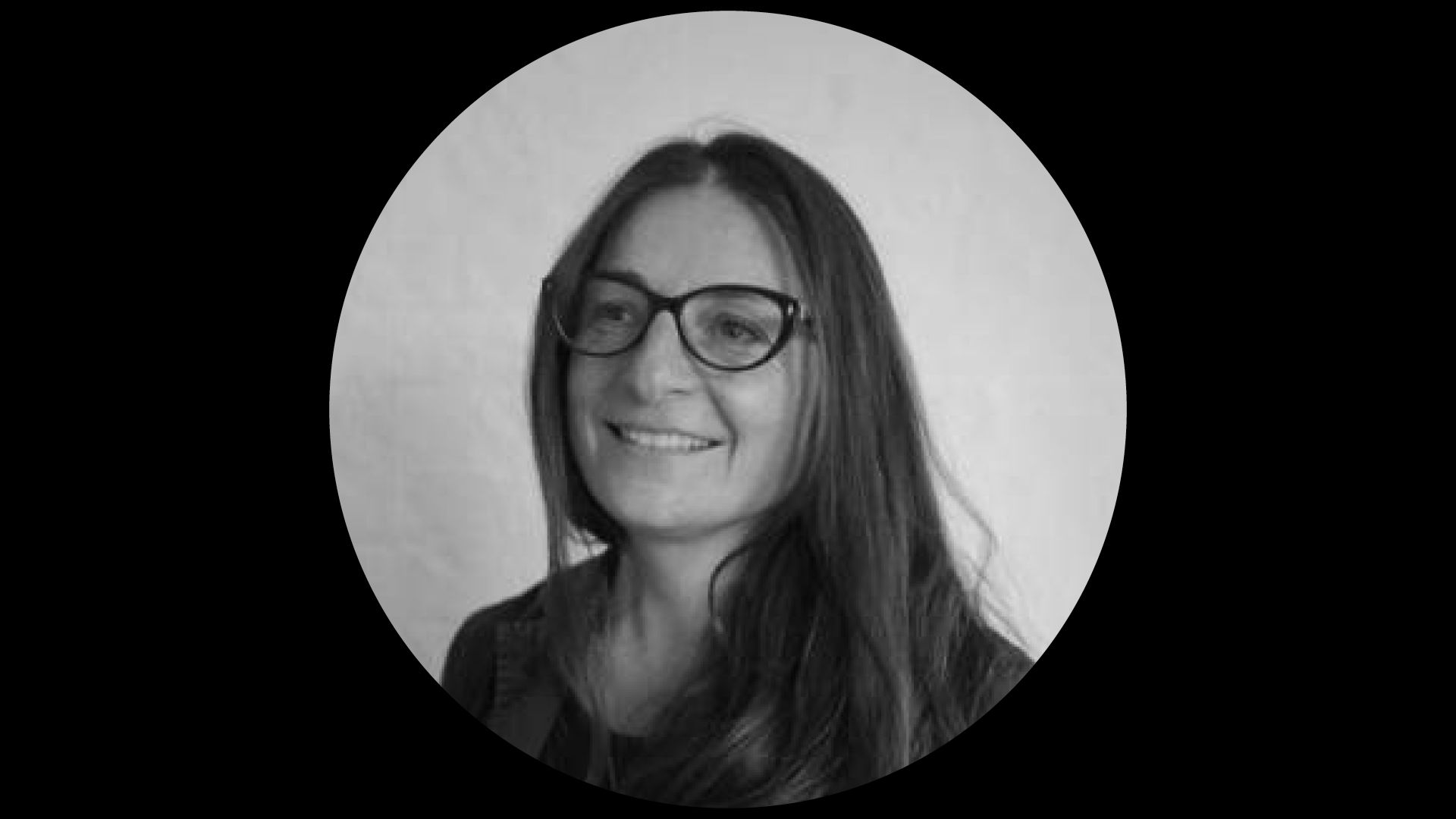Redefining prosperity in east London
A 10-year project is tracing the effects of urban regeneration on local communities in east London
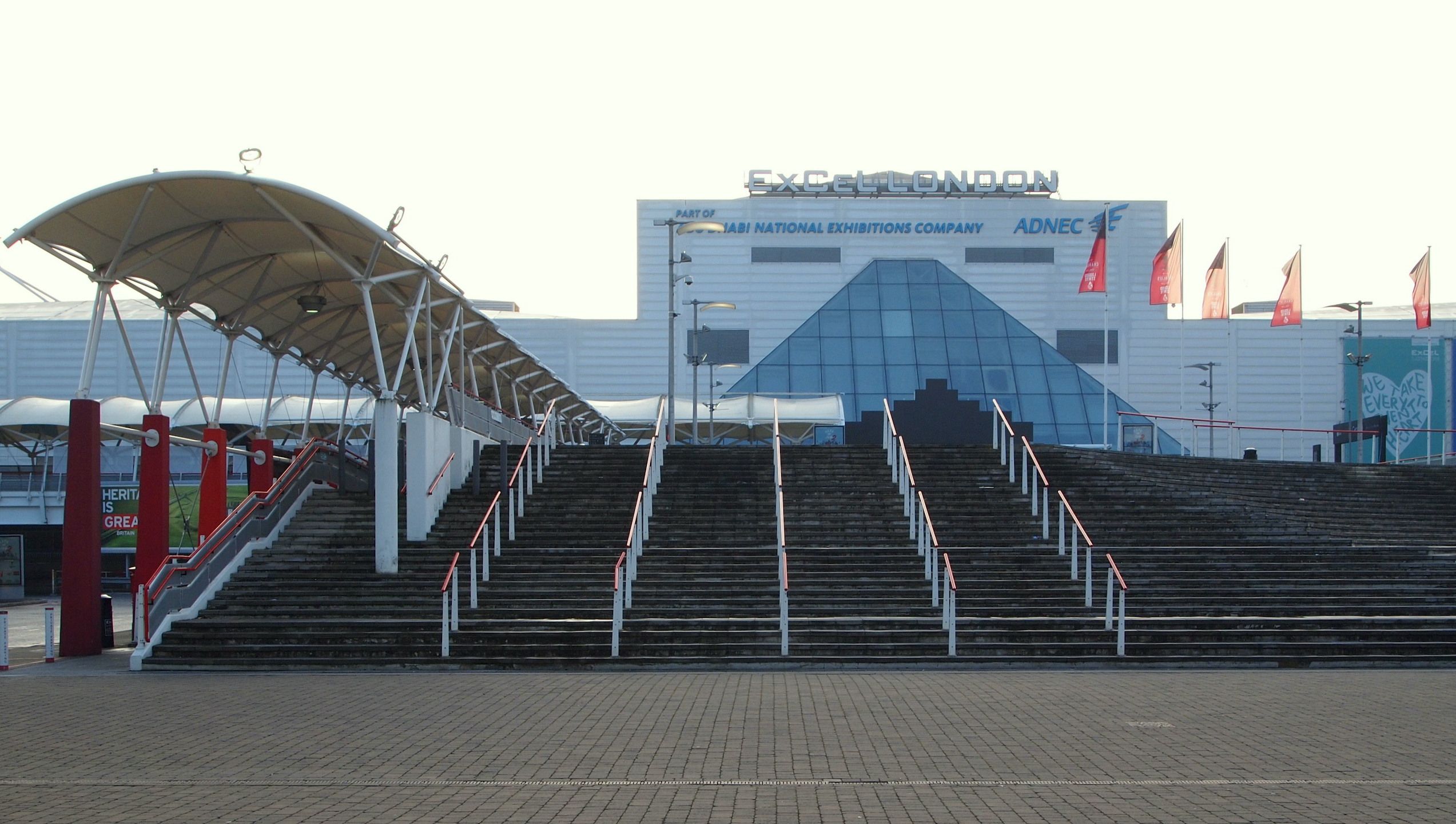
In the Collins English Dictionary, prosperity is defined as ‘the condition in which a person or community is doing well financially.’
Ask the residents of east London – areas like Custom House, the Gascoyne Estate, or Coventry Cross – and you’ll hear a different definition. In these places, prosperity means ‘living without fear or worry’, or just ‘being able to survive’.
Years of austerity and underfunded public services have left east Londoners with reduced opportunities and prospects, facing multiple interlinking challenges like racism, crime and food poverty.
“Across the bridge you will see a completely different world. New buildings, clean streets, and the greatest security...we feel like we do not exist. The Custom House community have been forgotten.”
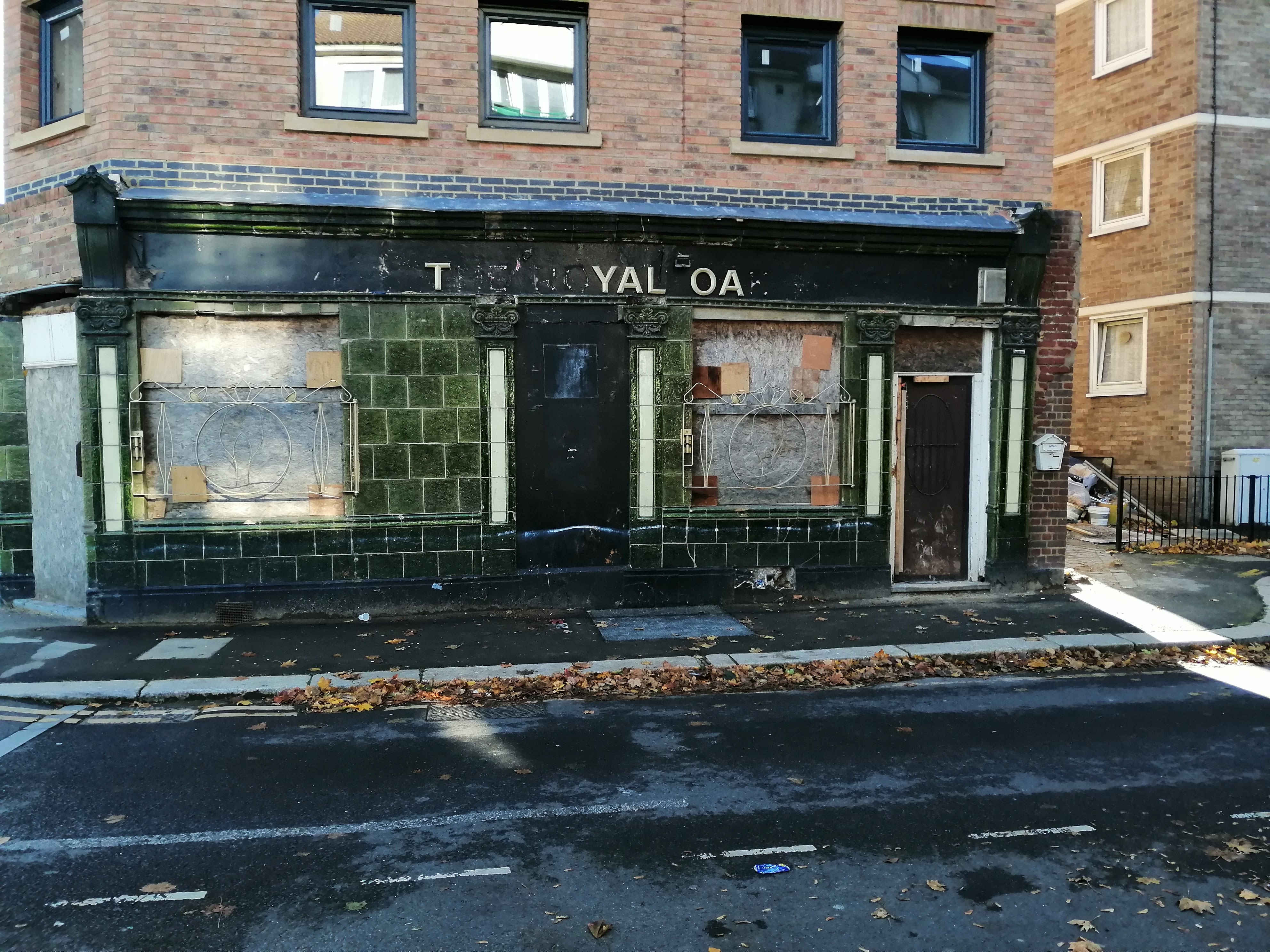
Corporate investment and economic regeneration initiatives on their doorstep often fail to provide these residents with relief. Usually, these projects offer few employment opportunities to locals, and the revenue generated doesn’t trickle down to local businesses and communities. These initiatives can also create upward pressure on local housing markets, making it harder for residents to stay in the area.
Now, community-based research by the UCL Institute of Global Prosperity (IGP) is uncovering more diverse perspectives of what it means to lead a prosperous life, challenging this narrow framing of prosperity as material wealth.
Opportunities for change
When Abdul saw the adverts asking for locals to take part in a project with the IGP, he immediately saw an opportunity to contribute, as “someone interested in social change...and also, obviously, getting paid an extra wage isn’t a bad shout!”
Abdul joined a team of ten citizen social scientists, recruited directly from the communities at the centre of the UK’s first decade-long research project about prosperity. The 'Prosperity in east London 2021-2031' longitudinal study has been built on two pillars: firstly, IGP’s work in the field of citizen-led research.
Training citizen scientists across London, Kenya, Tanzania and Lebanon has resulted in the development of UCL’s Citizen Science Academy, offering certified training and research programmes that are often co-designed with local government and community organisations to investigate local policy challenges.
By connecting citizens to policy-making and knowledge production in a rigorous way, the Academy works as a long-term infrastructure for citizen-led change.
Equally important is the role of the London Prosperity Board (LPB) in the project. Created in 2016, the LPB is a cross-sector partnership including the IGP, community organisations, private sector partners, five east London Borough councils, the Office for National Statistics (ONS), and the London Legacy Development Corporation (LLDC). The LPB provides funding and other resources. Their involvement also means that local council and private sector partners become committed advocates, boosting real-world outcomes and implementations based on the findings of the IGP’s citizen science research.
The 10-year project aims to trace the effects of large-scale and long-term urban regeneration on local communities in east London and consists of four waves of data collection. In the first wave, citizen scientists have worked intensively with around 40 community members, conducting interviews, focus groups, walking ethnographies, and generating audio-visual outputs for analysis. Surveys were conducted with over 4,000 households across 15 sites, asking over 100 questions that will track people’s reported prosperity across multiple domains.
Citizen Social Scientists from Barking & Dagenham, Regina Khan and Victorine NGOBO, with their research team members Emilia and Saumya - both officers of Barking & Dagenham Council. Image taken by Rahul.
Citizen Social Scientists from Barking & Dagenham, Regina Khan and Victorine NGOBO, with their research team members Emilia and Saumya - both officers of Barking & Dagenham Council. Image taken by Rahul.
Food bank near Carpenter’s Estate, Stratford. Image taken by citizen social scientist Alexis Charles
Food bank near Carpenter’s Estate, Stratford. Image taken by citizen social scientist Alexis Charles
View of Custom House estate from DLR bridge. Image taken by citizen social scientist Terry Regan
View of Custom House estate from DLR bridge. Image taken by citizen social scientist Terry Regan
A popular pub amongst creatives. Image taken by citizen social scientist Alexis Charles
A popular pub amongst creatives. Image taken by citizen social scientist Alexis Charles
Findings
So what are the initial findings of this first wave of the project? Of the various barriers to east London community prosperity, problems caused by food insecurity, and racial and gender inequality were key concerns.
In 14 of the 15 research sites, residents reported having difficulty buying enough food in the last year. In six of these sites, the proportion of people experiencing food poverty was more than 10%.
Many of these people were fully employed in low-wage jobs, or self-employed entrepreneurs.
“People (in Coventry Cross) had internalised and ‘conditioned’ themselves to thinking that ‘this is the best that they will get’ despite growing up literally seeing the wealth of Canary Wharf a stone’s throw away.”

Racial inequalities were found to have a complex range of socio-economic impacts. Participants from ethnic minorities talked of the difficulties they’d experienced in their professional lives, facing institutional barriers to obtaining funding, jobs and career opportunities.
“A person at an event we were organising asked me for more tea and coffee. They assume that I am in the catering team. I've had to learn systems and speaking methods to get what I need. I've learnt to speak posh and quote names, be assertive, confident and well-spoken, as well as develop a network of white allies. This is what you need to do. Not – getting too angry."
Results from the Citizen Prosperity Index household survey corroborated these lived experiences, with Black and Asian respondents experiencing greater livelihood insecurity than white respondents. These minority groups reported lower pay for similar hours worked, greater debt burden, and more difficulty meeting rising living costs and household bills.
These problems were further exacerbated by gender inequalities, with women reporting prosperity scores almost 20% lower than men across multiple domains.
Citizen social scientist Lorraine Owusu leading Mayor Philip Glanville and Hackney Council officers on a walking tour of Gascoyne Estate. Image taken by Gillian Chan
Citizen social scientist, Lorraine Owusu, leading Mayor Philip Glanville and Hackney Council officers on a walking tour of Gascoyne Estate. Image taken by Gillian Chan
Next steps and challenges
The initial results have been shared with partners and policymakers through walking tours, presentations, and a series of zines where citizen social scientists describe and explore their findings.
The team found that, even as members of the same communities, it was initially difficult to establish trust and open communication with interviewees. But by combining their communal experiences with the training and knowledge gained through a 10-week programme at the newly launched UCL Citizen Science Academy, they gained unique insights and qualitative data that researchers from outside the communities would be unlikely to obtain.
The training and certification offered by the Academy will also help the citizen scientists – and IGP – retain and build on their research skills. IGP is now working with its partners on the Prosperity Board to find progression routes and research career opportunities for the citizen scientists.
Retaining these researchers will provide continuity for the study, as well as helping Abdul and his fellow citizen scientists find answers to some of the difficult questions facing the communities of east London.
“IGP’s new approaches to community-based, practice-led social research can equip local communities to take action and drive change in urban contexts. This new process is fundamentally different – it’ll bring communities more targeted, effective and sustainable paths to prosperity. It’s localised, participatory research that is transforming how we think of prosperity.”
About the authors
Gillian Chan
Manager, Prosperity Co-Lab UK (ProCol UK), Institute for Global Prosperity
Gillian currently works with citizen social scientists and cross-sectoral partners in east London to embed novel ways of collaborative working, produce research outputs, and facilitate dialogue on achieving equitable urban prosperity. Trained in medical anthropology and political science, Gillian’s research interests include participatory research, health inequality, engaged anthropology and care.
Dr Saffron Woodcraft
Executive Lead, Prosperity Co-Lab UK (ProCol UK) and Principal Research Fellow, Institute for Global Prosperity
Saffron's research focuses on understanding lived experiences of prosperity and inequality, and developing new forms of knowledge, partnerships, and collaboration for action on place-based prosperity. Her work focuses on citizen 'social' science as an approach to developing new kinds of knowledge about transformative pathways to prosperity. She collaborates with citizen scientists, community organisations, local and central government policymakers, and businesses to connect local lived experiences of prosperity to innovation, regeneration planning, and decision-making processes that affect place-based strategies.
The Bartlett in London: celebrating 200 years of UCL
This story is part of the Bartlett in London series from the UCL Bartlett Faculty of the Built Environment.
In celebration of UCL's bicentenary in 2026, this series of stories explores our impact on the built environment of London – from creating healthier and more sustainable living, to supporting local communities and documenting London’s rich history.
Produced with support from the UCL Innovation and Enterprise Faculties Innovation Fund.
Story produced by All Things Words
© UCL The Bartlett 2023


